American Dream is a american film of genre Documentary directed by Barbara Kopple released in USA on 28 september 1990
American Dream (1990)
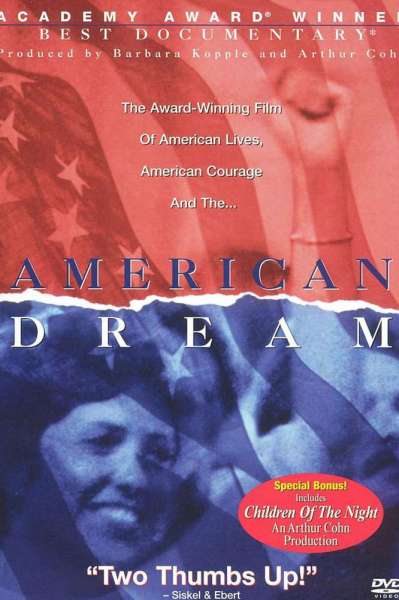
If you like this film, let us know!
- Infos
- Casting
- Technical infos
- Photos
- Videos
- Film quotes
- Characters
- Music
- Awards
Released in USA 28 september 1990
Length 1h40
Directed by Barbara Kopple
OriginUSA
Genres Documentary
Themes Films about the labor movement, Documentary films about historical events, Documentary films about politics, Political films
Rating77%










American Dream is a 1990 cinéma vérité documentary film directed by Barbara Kopple and co-directed by Cathy Caplan, Thomas Haneke, and Lawrence Silk.
The film recounts an unsuccessful strike in the heartland of America against the Hormel Foods corporation.
Synopsis
The film is centered on unionized meatpacking workers at Hormel Foods in Austin, Minnesota between 1985 and 1986. Hormel had cut the hourly wage from $10.69 to $8.25 and cut benefits by 30 percent despite posting a net profit of $30 million. The local union (P-9) opposed the cut, but the national union, the United Food and Commercial Workers, disagreed with their strategy.Comments
Leave comment :
Suggestions of similar film to American Dream
There are 11 films with the same director, 8855 with the same cinematographic genres, 8804 films with the same themes (including 10 films with the same 4 themes than American Dream), to have finally 70 suggestions of similar films.If you liked American Dream, you will probably like those similar films :
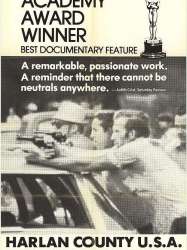
Harlan County U.S.A. (1977)
, 1h43Directed by Barbara Kopple
Origin USA
Genres Documentary
Themes Environmental films, Films about anarchism, Politique, Films about the labor movement, Documentary films about business, Documentary films about environmental issues, Documentary films about politics, Documentary films about technology, Documentary films about anarchism, Political films
Rating81%





Kopple initially intended to make a film about Kenzie, Miners for Democracy and the attempt to unseat Tony Boyle. When miners at the Brookside Mine in Harlan County, Kentucky went on strike in June 1972, Kopple went there to film the strike against Duke Power Company which the UMWA had helped to organize. The strike proved a more interesting subject, so Kopple switched the focus of her film.
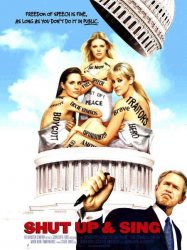 , 1h33
, 1h33Directed by Barbara Kopple, Cecilia Peck
Origin USA
Genres Documentary, Musical
Themes Films about music and musicians, Documentary films about historical events, Documentary films about music and musicians, Documentaire sur une personnalité, Documentary films about politics, Musical films, Political films
Actors Elizabeth Reaser, Emily Robison, Adrian Pasdar, Rick Rubin
Rating75%





The film opens during the Dixie Chicks' 2003 Top of the World Tour, discussing the Dixie Chicks' super-star status prior the incident at their London show. They had sold more albums in the United States than any other female band in history. With the release of their 2002 album Home, they were again at the top of the Billboard Charts. The new single from that album "Travelin' Soldier", a sensitive depiction of a soldier's life during the Vietnam War era, and the young woman who waited for him, finding he was killed in battle, had peaked at #1 on the US Billboard Hot Country Songs Chart.
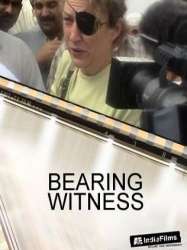
Bearing Witness (2005)
, 1h30Directed by Barbara Kopple
Origin USA
Genres Documentary
Themes Documentary films about war, Documentary films about historical events, Political films
Rating79%





It follows five women reporters and the challenges they face as they work in Iraq during the Second Gulf War. Molly Bingham is an experienced photographer who was held for several days at Abu Ghraib prison at the start of the war. Marie Colvin was a reporter who lost her eye to a grenade while working in Sri Lanka. Janine di Giovanni has to deal with the difficulties of becoming a mother and still working to fulfill her duties as a journalist. Mary Rogers is a camerawoman who continues to put herself in harm's way in an effort to get the proper footage to cover her stories.
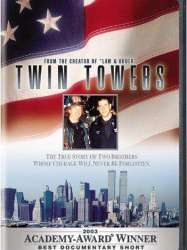
Twin Towers (2003)
, 34minutesDirected by Bill Guttentag
Origin USA
Genres Documentary
Themes Films based on the September 11 attacks, Films about religion, Films about terrorism, Transport films, Films about the labor movement, Aviation films, Documentary films about law, Documentary films about war, Documentary films about historical events, Documentary films about politics, Documentary films about religion, Documentary films about technology, Documentary films about terrorism, Political films, Films about Islam, Dans un avion, Disaster films, Films about aviation accidents or incidents, Films about hijackings
Actors Bill Guttentag
Rating73%





L'héroisme de deux frères, l'un pompier et l'autre policier, pendant les attentats du 11 septembre 2001 à New York.
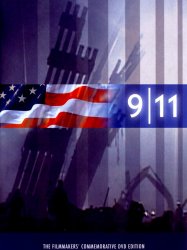
9/11 (2004)
, 2h8Directed by James Hanlon, Gédéon Naudet, Jules Naudet
Origin USA
Genres Documentary
Themes Films based on the September 11 attacks, Films about religion, Films about terrorism, Transport films, Films about the labor movement, Aviation films, Documentary films about law, Documentary films about war, Documentary films about historical events, Documentary films about politics, Documentary films about religion, Documentary films about technology, Documentary films about terrorism, Political films, Films about Islam, Dans un avion, Disaster films, Films about aviation accidents or incidents, Films about hijackings
Actors Robert De Niro, James Hanlon, Steve Buscemi
Rating84%





Filmmakers James Hanlon and the Naudet brothers were originally filming Tony Benetatos, a probationary firefighter of the New York City Fire Department assigned to the Engine 7/Ladder 1/Battalion 1 Firehouse on Duane Street in Lower Manhattan with the intention of making a film about the "probie's" first experience as a firefighter. On the morning of September 11, the firehouse, under the direction of Battalion Chief Joseph Pfeifer, was called out on a reported "odor of gas" at Church and Lispenard Streets. Jules rode with Pfeifer to investigate, while Gedeon stayed behind at the firehouse with the "probie.
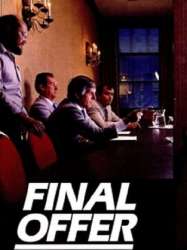
Final Offer (1985)
, 1h18Directed by Sturla Gunnarsson
Origin Canada
Genres Documentary
Themes Transport films, Films about the labor movement, Films about automobiles, Documentary films about business, Documentary films about historical events, Documentary films about politics, Documentary films about technology, Political films, Road movies
Rating76%






Wild Man Blues (1997)
, 1h45Directed by Barbara Kopple
Origin USA
Genres Documentary, Musical
Themes Films about music and musicians, Documentary films about music and musicians, Documentaire sur une personnalité, Musical films
Actors Woody Allen, Letty Aronson, Soon-Yi Previn
Rating68%





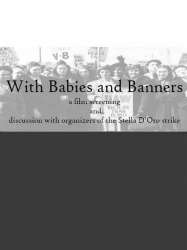 , 45minutes
, 45minutesOrigin USA
Genres Documentary
Themes Feminist films, Films about the labor movement, Documentary films about historical events, Documentaire sur une personnalité, Documentary films about politics, Political films
Rating66%






They Were Not Silent (1997)
, 30minutesGenres Documentary
Themes Films about racism, Films about religion, Films about the labor movement, Documentary films about racism, Documentary films about law, Documentary films about war, Documentary films about historical events, Documentaire sur une personnalité, Documentary films about politics, Documentary films about religion, Political films, Films about Jews and Judaism, Documentary films about World War II
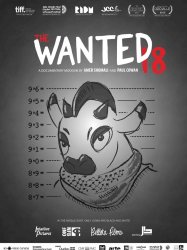
The Wanted 18 (2014)
, 1h15Origin Canada
Genres Documentary, Animation
Themes Films set in Africa, Films about animals, Environmental films, Films about religion, Films about the labor movement, Documentary films about business, Documentary films about law, Documentary films about environmental issues, Documentary films about war, Documentary films about historical events, Documentary films about politics, Documentary films about religion, Documentaire sur le monde du travail, Films about cows, Political films, Films about Jews and Judaism, Mise en scène d'un mammifère
Rating71%





L'œuvre présente les efforts des Palestiniens habitant la ville et la région de Beit Sahour, en Cisjordanie, pour démarrer une petite industrie laitière locale au cours de la première Intifada, en cachant un troupeau de dix-huit vaches laitières aux forces de sécurité israéliennes qui considérait la production de laitages comme une menace pour la sécurité nationale d'Israël.
 Connection
Connection